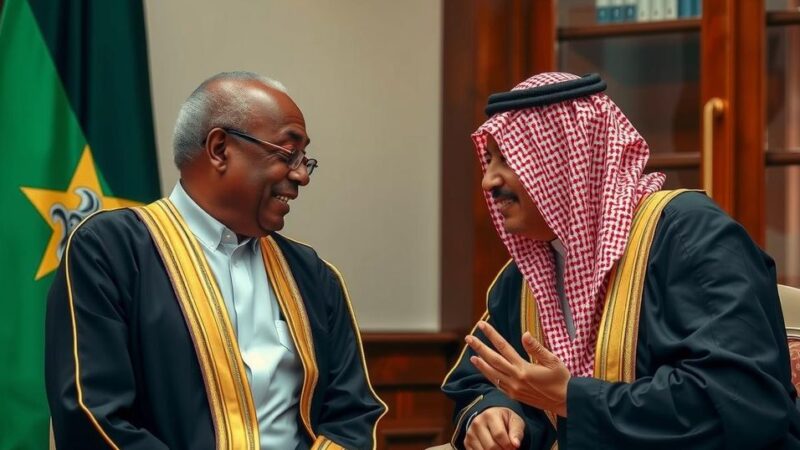Bangladesh’s government, under Muhammad Yunus, has recalled five envoys, including the High Commissioner to India, amidst escalating political tensions and diplomatic shifts. This comes in the wake of protests that ousted former Prime Minister Sheikh Hasina, leading to concerns over governance and diplomatic relations.
The government of Bangladesh, led by Muhammad Yunus, has initiated a significant diplomatic overhaul by recalling five ambassadors, including the High Commissioner to India, Mustafizur Rahman. This decision, reported by the Bangla daily Prothom Alo, involves the immediate return of envoys from various key locations: New Delhi, Brussels, Canberra, Lisbon, and the Permanent Mission to the United Nations in New York. Other diplomats affected by this reshuffle include Muhammad Abdul Muhith, Ambassador and Permanent Representative to the UN; Mahbub Hassan Saleh, Ambassador to Belgium; M Allama Siddiqui, High Commissioner to Australia; and Rezina Ahmed, Ambassador to Portugal. This sweeping change follows the earlier recall of Saida Muna Tasneem, who served as the High Commissioner to Britain. The diplomatic repositioning occurs against a backdrop of heightened tensions between Bangladesh and India, accelerated by the recent political upheaval in Bangladesh that resulted in the resignation of former Prime Minister Sheikh Hasina amid widespread protests. In the wake of these events, which were primarily fueled by discontent regarding a controversial job quota system, Hasina sought refuge in India following her resignation on August 5, before Yunus took over the leadership of the interim government on August 8. The protests, originally aimed at advocating for equitable employment opportunities, quickly transformed into a broader movement addressing systemic corruption and authoritarian rule.
The recent diplomatic changes in Bangladesh reflect the country’s tumultuous political landscape, particularly following the ousting of Sheikh Hasina. The Yemen-led interim government is under scrutiny as it seeks to stabilize relations both domestically and internationally. The massive protests that led to Hasina’s resignation were not just about employment grievances; they symbolized deeper frustrations with governance and democratic integrity, pointing to a fragile socio-political situation. The abrupt recall of diplomats, especially from key strategic countries, may indicate a shift in foreign policy direction as the interim government reassesses its international alliances, particularly with neighboring India. In light of these developments, the upcoming actions of the Yunus administration will be crucial in determining Bangladesh’s diplomatic and political trajectory for the future.
In conclusion, the recent recall of Bangladesh’s ambassadors, including the High Commissioner to India, marks a critical moment in the country’s diplomatic strategy amidst ongoing political instability. The move not only underscores the urgency for the Yunus-led government to navigate its foreign relations effectively but also highlights the broader implications of the social unrest that has shaken the nation. The relationship with India, a vital partner, will require careful cultivation moving forward, as Bangladesh seeks to re-establish its international standing during this period of transition.
Original Source: indianexpress.com






